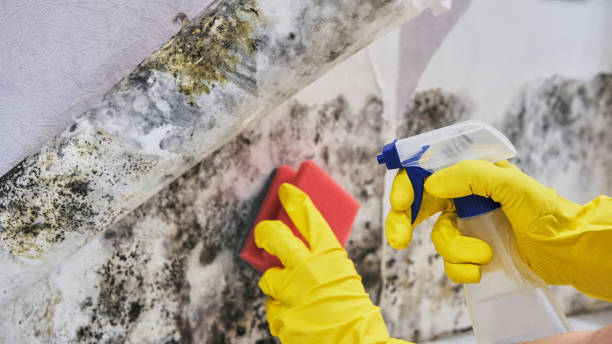
Mold exposure in homes and workplaces can lead to a variety of health issues, from respiratory problems and allergic reactions to chronic fatigue and cognitive difficulties. For those concerned about the impact of mold on their health, accurate testing and diagnosis are crucial for effective treatment and remediation. At Tulsi Wellness Club, we emphasize the importance of understanding and addressing environmental toxins to maintain holistic health. One advanced tool for assessing mold-related health problems is the Great Plains Lab Mold Poison Test.
In this article, we’ll explore what the Great Plains Lab Mold Poison Test is, how it works, and why it might be a valuable component of your approach to dealing with mold-related health concerns.
What is the Great Plains Lab Mold Poison Test?
The Great Plains Lab Mold Poison Test is a specialized diagnostic tool designed to detect the presence of mycotoxins in the body. Mycotoxins are toxic compounds produced by certain types of mold, and their presence in the body can lead to a range of health issues. The test, developed by Great Plains Laboratory, is part of a broader set of environmental and functional medicine tests aimed at identifying the impact of environmental toxins on health.
The Great Plains Lab Mold Poison Test assesses mycotoxin levels through a simple urine sample, providing insights into mold exposure and its potential effects on your health.
How Does the Great Plains Lab Mold Poison Test Work?
-
Sample Collection: The test involves collecting a urine sample, which is then sent to the Great Plains Laboratory for analysis. This method is non-invasive and relatively easy to perform.
-
Laboratory Analysis: In the lab, the urine sample is analyzed for the presence of mycotoxins produced by various mold species. The test can identify a range of mycotoxins, including those from common molds such as Aspergillus, Penicillium, and Fusarium.
-
Results Interpretation: The results provide information on the levels of specific mycotoxins in the urine. Elevated levels may indicate significant mold exposure or ongoing mold-related health issues. The results are usually accompanied by recommendations for further action or treatment based on the findings.
Why Consider the Great Plains Lab Mold Poison Test?
Accurate Detection of Mycotoxins
Mycotoxins are potent and can affect various systems in the body, including the immune system, respiratory system, and nervous system. The Great Plains Lab Mold Poison Test offers precise detection of these toxins, helping to pinpoint exposure and assess its impact on health.
- Identification of Specific Toxins: The test can identify specific mycotoxins, which helps in understanding the type of mold causing the problem and tailoring treatment accordingly.
Holistic Health Approach
At Tulsi Wellness Club, we advocate for a holistic approach to health, which includes understanding how environmental toxins affect overall well-being. The Great Plains Lab Mold Poison Test fits within this framework by providing insights into how mold exposure impacts your body.
- Functional Medicine Insight: The test is part of a broader functional medicine approach that looks beyond conventional diagnostics to understand the root causes of health issues.
Guiding Treatment and Remediation
Identifying mycotoxins in your system can guide both medical treatment and environmental remediation efforts. Knowing the specific toxins involved allows for more targeted detoxification strategies and remediation practices.
-
Personalized Detoxification: Based on test results, practitioners can recommend personalized detox protocols, including supplements and dietary adjustments, to help eliminate mycotoxins from the body.
-
Effective Mold Remediation: Understanding the type and level of mycotoxins can also inform effective mold removal strategies in your living or working environment.
Monitoring Health Progress
For individuals who have undergone mold remediation or detoxification protocols, the test can serve as a valuable tool for monitoring progress and ensuring that mycotoxin levels are decreasing over time.
- Follow-Up Testing: Repeating the test after treatment can help assess the effectiveness of remediation efforts and make necessary adjustments to health strategies.
How to Get the Great Plains Lab Mold Poison Test
The Great Plains Lab Mold Poison Test can be ordered through healthcare practitioners who are familiar with functional medicine and environmental health. Many integrative and functional medicine practitioners offer this test as part of their diagnostic services.
-
Consult with a Healthcare Practitioner: If you suspect mold exposure or are experiencing symptoms related to mold toxicity, consult with a healthcare provider who can order the test for you.
-
Sample Collection: Follow the instructions provided for collecting and sending your urine sample to the laboratory.
-
Receive and Review Results: Once the laboratory analysis is complete, you will receive a detailed report of your mycotoxin levels. Discuss the results with your healthcare provider to understand their implications and develop a plan for addressing any issues.
Conclusion
The Great Plains Lab Mold Poison Test offers a valuable tool for detecting mycotoxins and understanding the impact of mold exposure on health. By providing precise information on mycotoxin levels, the test supports a holistic approach to health that addresses both the environmental and physiological aspects of mold-related issues.
At Tulsi Wellness Club, we emphasize the importance of comprehensive health assessments and personalized approaches to treatment. If you suspect mold exposure or are experiencing symptoms related to mycotoxin exposure, consider the Great Plains Lab Mold Poison Test as part of your journey toward better health and wellness.
Dr. Devin Stone
Contact Me


